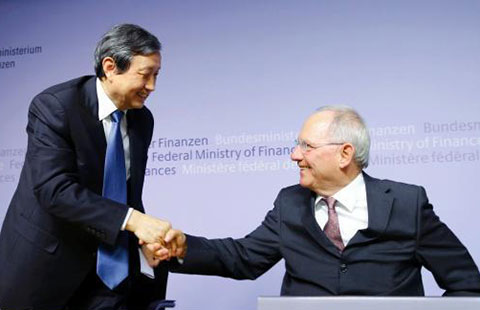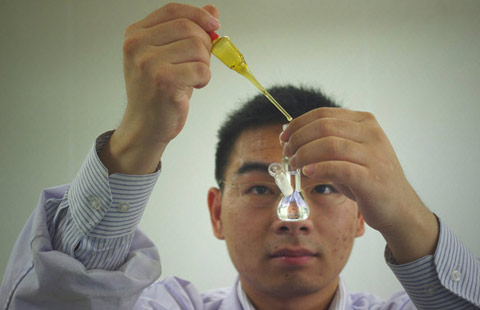Investment ties to further strengthen China-EU cooperation
(Xinhua) Updated: 2015-04-02 10:24According to EU sources, its investment strategy is seeking to cooperate with the "Belt and Road" initiative in specific projects.
Katainen said Chinese investment was "very welcome," especially to fill in the gaps in long-term infrastructure needs in EU member states. This is particularly the case in eastern and central European countries and in Balkan countries, for which China is ready to allocate investment funds from the AIIB and the Silk Road Fund.
Some experts see this as a good sign for EU-China economic cooperation, also taking into account other positive developments such as the China-EU 2020 Strategic Agenda and negotiations on a bilateral investment agreement hopefully to be concluded by 2015.
Duncan Freeman, research fellow at the Brussels Institute of Contemporary China Studies, said the EU needs as much investment as China could offer, although China will not be able or willing to cover all the possible investment requirements.
According to Freeman, "there is likely to be more interest from member states and business sectors that see a real benefit from the initiative."
"Rather than seeking a broad framework at the EU level, it may be more practical to work on a project-by-project basis," he added.
- Lebanon, China issue joint credit cards to enhance "Silk Road"
- AIIB has tremendous influence on shift of power from West to East
- Coal sector's woes drive up bad loans
- China willing to strengthen communication with India
- China's deposit insurance brings floating interest rates closer
- Environment ministry targets fake air quality data
- State Council vows measures to boost e-commerce
- Alibaba to fund mobile commerce start-up incubator in India

















